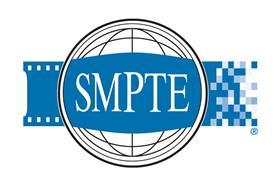Details of the adherence criteria and deadline dates announced

The Society of Motion Picture and Television Engineers (SMPTE) has requested proposals for technical papers to be submitted by May 15 for the SMPTE 2017 Annual Technical Conference and Exhibition, October 23 – 26 2017, in Hollywood.
Proposed papers must adhere to the criteria of research or theory oriented presentations, case studies, tutorials, or technical descriptions of an application or implementation; and be informational, address technical theory, research, innovations, applications, or practices specific to an evolving technology relevant to the media industry.
Successful paper submissions should cover subjects such as ultra high definition (UHD); colour and dynamic range management; the future of media distribution (OTT, ATSC 3.0, mobile); media infrastructure (SDI, IP); workflow management (file-based, automation); advances in display technologies; future media technology (virtual reality, augmented reality, 360 video); machine learning and artificial intelligence (AI); to name a few.
SMPTE standards have supported a century of technical advances in entertainment technology; SMPTE Education Director, Sara Kudrle, said, “As SMPTE enters its next century, technological innovation is accelerating.”
“The technologies that enable creative storytelling have already made significant advancements. Higher resolutions, faster frame rates, wider colour gamut, and bit depths are regularly being introduced while current conversations are exploring IT and cloud technologies, virtualization, and artificial intelligence with a focus on how they will impact the industry. The papers presented at the conference will delve into these and other key questions shaping the future of the motion imaging industry,” Kudrle said.
A non-exclusive list of topics to consider:
- UHD: Bigger, Better, Faster Pixels
- Color and Dynamic Range Management
- Future of Media Distributions (OTT, ATSC 3.0, mobile, etc.)
- Media Infrastructure (SDI, IP)
- Workflow Management (file-based, automation)
- Cloud and Virtualized Media Processing
- Image Acquisition and Processing
- Content Management and Storage, Restoration, and Preservation
- Cinema Processing and Projection Technology
- Human Perception of Images or Sound
- Quality and Monitoring of Images and Sound
- New Compression Techniques and Implementations
- Content and Network Security
- New Techniques in Audio (scene-based production, compression, transport, immersive)
- Advances in Display Technologies
- Future Media Technology (Virtual Reality/Augmented Reality/360o Video)
- New and Novel Technology and Techniques
- Machine Learning and Artificial Intelligence technology in professional content creation
- Encouraging Diversity in STEM
- Change Management (CM)
Authors are encouraged to submit their papers early, relevant to the themes outlined and note commercial or promotional submissions will not be considered.
A more comprehensive listing of potential topics, along with instructions on submitting an abstract, is available here.



























No comments yet